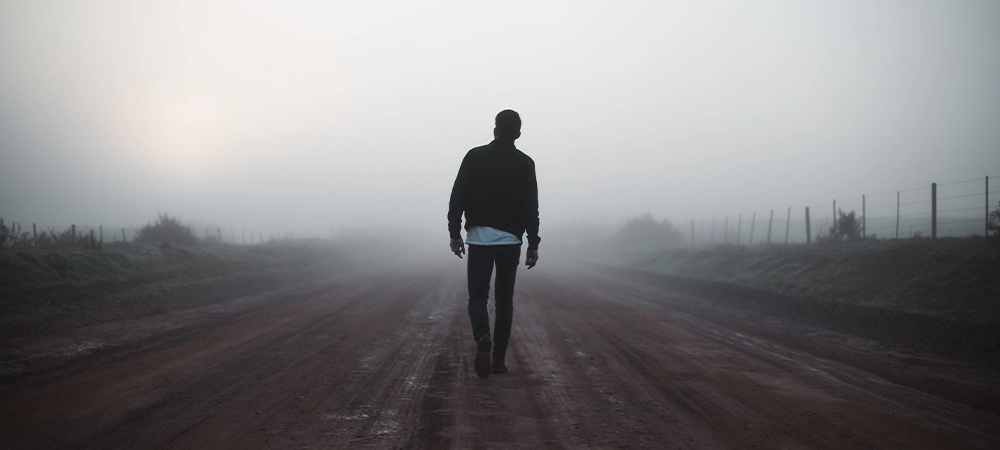The first 30 days of sobriety are a turning point. Whether you’re coming out of detox, just starting inpatient treatment, or beginning a virtual program, the first month is about one thing: stabilization.
It’s not about having it all figured out. It’s about showing up every day, doing the next right thing, and building new habits that support your recovery.
At Addiction Rehab Toronto, we’ve helped thousands of clients overcome this fragile and often overwhelming first phase. Here’s a structured, practical daily checklist that supports your recovery day by day with zero fluff and no false promises.
Related Article: The Importance of Aftercare in Sustaining Long-Term Sobriety
Why a Daily Checklist Helps
Sobriety isn’t just a decision, it’s a full reset. In early recovery, your brain is recalibrating. Sleep may be off, emotions are unpredictable, and cravings can spike. A checklist creates structure, which is critical when your internal world feels chaotic.
This checklist keeps you focused on the essentials: staying safe, building awareness, and creating small wins every day. It won’t solve everything, but it gives you direction. And that’s enough to keep moving forward.
The Core Focus of Your First 30 Days
Every day in early sobriety should hit three main goals:
- Stay substance-free
- Build a routine and accountability
- Strengthen your support system
Everything in this checklist feeds into those pillars.
Related Article: Ten Interesting Sober Activities for Winter
The Daily Sobriety Checklist
The first month of sobriety is about building stability through small, repeatable actions. This daily checklist focuses on what matters most: staying sober, staying grounded, and staying connected. Use it as your foundation, one day at a time.
-
Wake Up at the Same Time Each Day
Start your day with consistency. Set an alarm. Get out of bed. Even if you don’t have a job or school right now, this habit builds discipline and reduces anxiety.
Target time: Between 6:30 a.m. and 8:00 a.m.
-
Drink Water and Eat Something Nourishing
Your body is healing. Rehydration and balanced nutrition help stabilize your mood and energy levels. Avoid caffeine overload and sugar crashes. Both can spike anxiety and cravings.
-
Take Medication as Prescribed
If you’re on any prescribed medication for mental health or addiction support, take it exactly as directed. Skipping or altering dosages can lead to serious setbacks.
-
Check In With a Support Person
Call, text, or speak with someone who supports your recovery. This could be:
- A counsellor
- A recovery peer
- A family member (if appropriate)
- Your support worker at Addiction Rehab Toronto
Connection combats isolation. You don’t need to have deep conversations every day, just check in.

-
Review One Recovery Tool or Reading
Spend 10–15 minutes reading or listening to recovery content. Choose something practical — a short reading, a podcast episode, or a segment from your therapy workbook. Some options:
- CBT worksheets
- Daily reflections
- Step work if you’re in a 12-step program
- Psychoeducation on cravings or emotional regulation
-
Set One Concrete Goal for the Day
Make it realistic and measurable. Examples:
- Attend a group session
- Go for a 20-minute walk
- Make a healthy lunch
- Finish a therapy assignment
Keep it small. Success builds confidence. And that’s more valuable than setting an impossible goal and failing.
-
Attend a Recovery Session or Check-In
This could include:
- Group therapy
- Individual counselling
- Peer-led support group
- A Zoom session through virtual rehab
Daily engagement keeps you aligned and reminds you you’re not doing this alone.
-
Move Your Body
You don’t need to train for a marathon. But you do need to move.
- Walk
- Stretch
- Do light resistance exercises
- Practice yoga or deep breathing
Even 15–30 minutes of movement improves your mood, sleep, and focus. It also helps burn off restless energy.
-
Write Down 2–3 Thoughts or Feelings
Journaling keeps you aware of what’s going on internally. You don’t need to write a novel. Just reflect on:
- What am I feeling today?
- What’s one thing that challenged me?
- What’s one thing I handled well?
Writing slows your thinking down. It brings clarity, and clarity helps you avoid impulsive decisions.
Related Article: Sober Activities to Enjoy When Recovering from Drug Addiction
-
Avoid Trigger Environments
Stay away from places, people, and situations that increase your risk of relapse. If you absolutely must be in a risky setting (e.g., family obligation), make sure you have:
- A clear exit plan
- A person you can call
- A time limit
Boundaries matter. And no, it’s not “rude” to protect your sobriety.

-
Prepare for Cravings
Cravings are normal in early sobriety. What matters is how you respond.
Have a few go-to strategies ready, such as:
- Texting your support person
- Going outside for a walk
- Eating something nourishing
- Distracting yourself with a task or game
- Reminding yourself what happens if you use
Planning ahead reduces panic when cravings hit.
-
Shut Down Screens at Least 30 Minutes Before Bed
Digital overload disrupts sleep, and poor sleep increases relapse risk. Create a wind-down routine:
- Put your phone on silent
- Avoid doom-scrolling or emotional content
- Read or stretch
- Take a warm shower
Better sleep = better impulse control and fewer mood crashes.
-
Reflect: One Win, One Challenge
Before bed, pause and reflect:
- What went well today?
- What was hard?
- What will I do differently tomorrow?
You don’t need to fix everything overnight. Just stay honest and keep showing up.
Related Article: Does Sober Living Work? An In-Depth Explanation
What You Can Expect in These First 30 Days
Each week brings different challenges and progress:
Week 1:
- Physical withdrawal symptoms (if not already detoxed)
- Cravings, mood swings, anxiety
- Sleep disruption
Week 2:
- Fog begins to lift
- Still emotionally raw
- Support is critical
Week 3–4:
- Energy starts to return
- New routines feel more natural
- Emotional triggers show up — time to apply tools
This is where structure matters most. Having daily checkboxes keeps your focus on progress, not perfection.

Bonus Tips for Success
- Don’t chase motivation; build a routine instead. Some days you won’t feel like doing anything. That’s when your routine carries you.
- Cut the self-blame. You’re doing something incredibly difficult. The goal is consistency, not perfection.
- Use professional support. At Addiction Rehab Toronto, we offer inpatient, virtual, and transitional support that can keep you anchored through the hardest parts.
Progress Over Perfection: You’re Doing the Work
There’s no perfect version of early sobriety. You’ll have good days, hard days, and everything in between. But if you’re showing up daily, doing the basics, and staying honest, you’re in recovery.
This checklist isn’t magic. But it works when you work it. And if you slip, you don’t start from zero, you just start again.
Keep Moving: You Don’t Have to Do This Alone
The first 30 days of sobriety are intense, but they lay the foundation for everything that comes after. Structure, support, and daily action make all the difference.
At Addiction Rehab Toronto, we’re here to walk with you through every phase — from detox to full recovery. Whether you need inpatient care, virtual rehab, or family support, our team helps you build a plan that works one day at a time.
Start your first 30 days with the right support. Contact us today to learn more or book a consultation.







